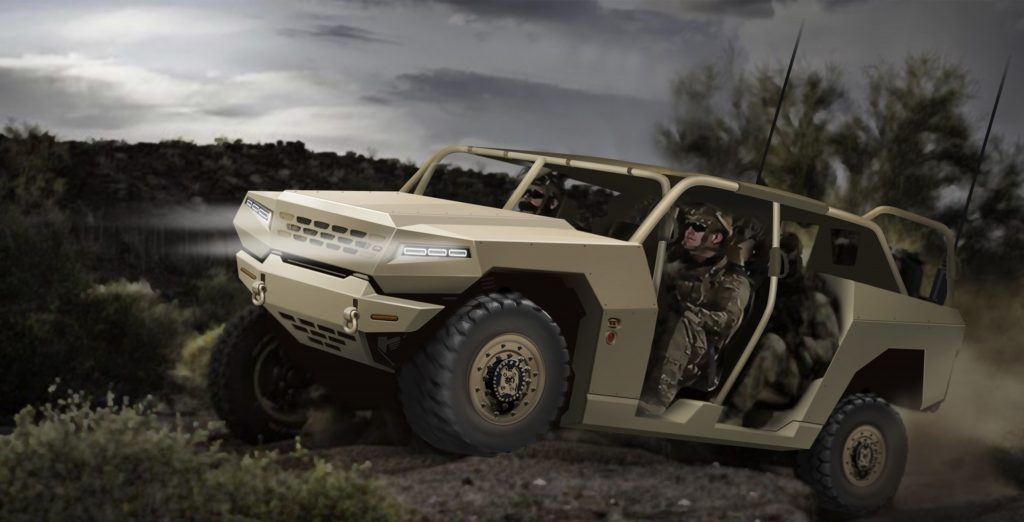Kia Motors Corporation is to develop a new standard platform for next-gen military vehicles in collaboration with the Korean military. The auto maker plans to start manufacturing prototypes of mid-size standard vehicles by the end of 2020 and will undergo testing by the Korean government in 2021. The aim is to deploy the vehicles to the military from 2024, following standardization and initial production tests.
The large-scale program will see the replacement of 2.5-metric ton and 5-metric ton military standard vehicles currently in operation, and the development of new 5-metric ton bulletproof vehicles.
The standard vehicles will be equipped with a range of the latest commercial technologies, including high-torque 7.0-liter diesel engines and automatic transmission systems, ABS and anti-spin regulator (ASR), rear parking assist, around-view monitor, satellite navigation and hot wire seats.
Kia’s modular approach to developing new vehicles on the platform will enable the development of other derivatives in future, such as vehicles equipped with a range of weapons systems, and those designed with more specialized specifications and technologies.
The company has developed a conceptual brief for its new military all-terrain vehicles (ATVs) and plans to have a prototype ready early next year. The ATVs will not only be deployed for military purposes, but will also be used in various fields, such as industrial and leisure sectors, drawing on the chassis from the Kia Mohave SUV. Much of the technology and know-how gained from Kia’s military vehicle development will be applied to improve the durability of its road-going SUVs.
To contribute to the development of the military’s future combat systems, Kia is also actively carrying out advanced R&D, combining the latest automotive technology with military vehicles, including the development of autonomous driving technology, which could assist with delivering supplies.
Furthermore, Kia is exploring the potential for hydrogen fuel cell technology across a diversity of military applications, including fuel cell vehicles and emergency power generators. Fuel cell tech is considered suitable for future military vehicles as it can supply large amounts of electricity in combat environments.


